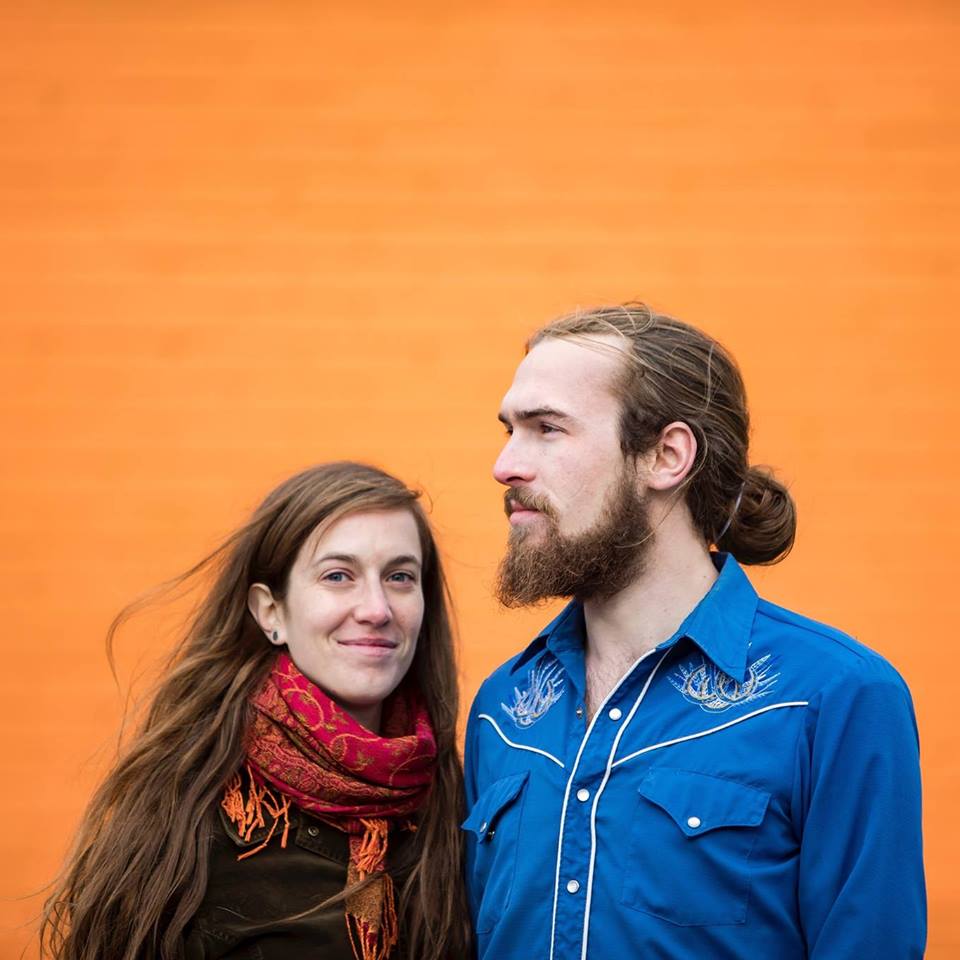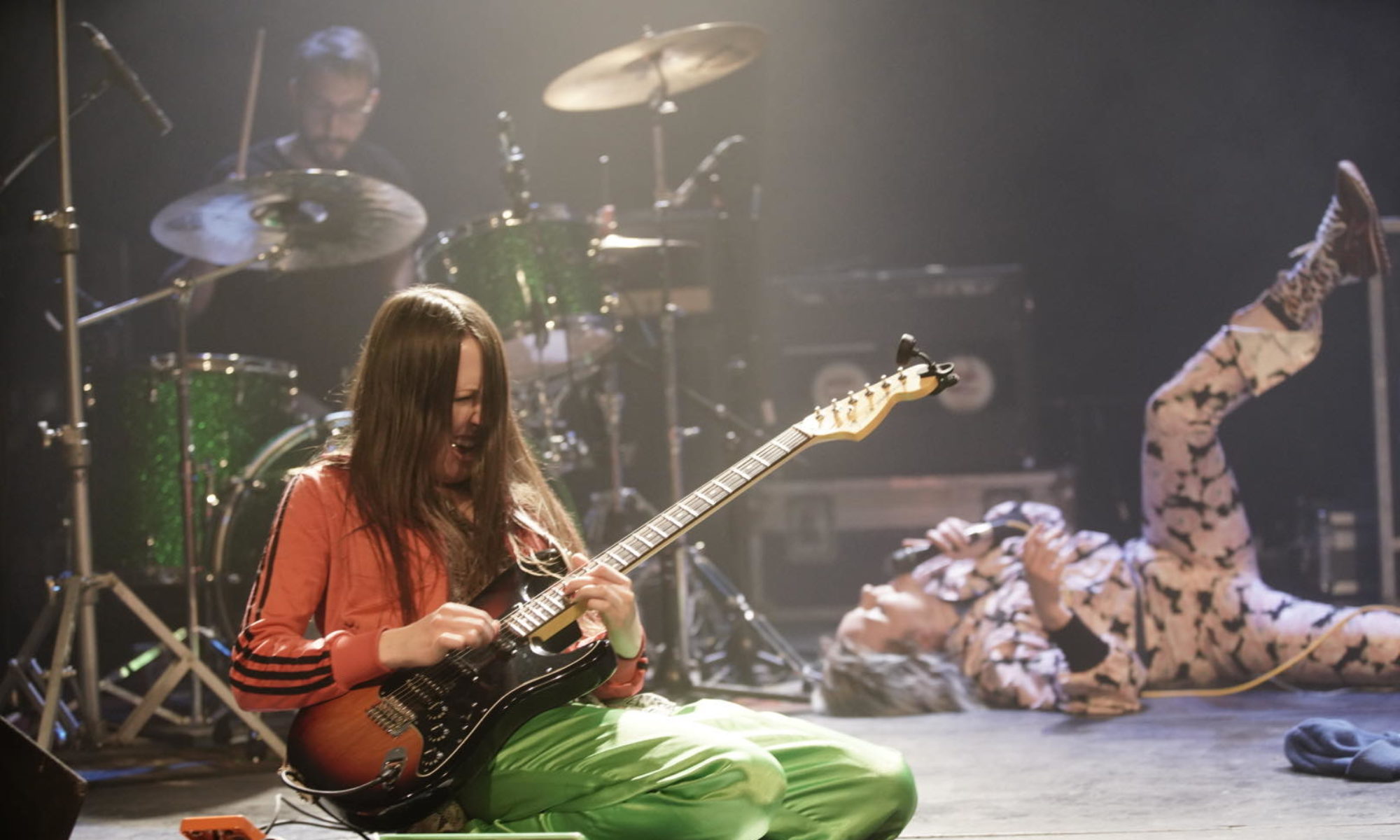
by Olivia Michalczuk
Folk duo and twins Lucas and Madeleine Roger are preparing to open the festival and play the main stage at what they refer to as a second home, Winnipeg Folk Festival. Their family is no stranger to the festival. The family’s colourful history with WFF dates further back than their first-year camping as babies in 1992.
Lucas Roger’s first on stage Folk Fest appearance was in his fathers’ arms as a baby, Lloyd Peterson working for CBC at the time and hosting a workshop. “Fast forward 22 years, Lucas and Madeline are playing on the same stage,” Lloyd said.
It all started when their father — performing musician, audio engineer, music producer, and co-owner of Paintbox Recording, Lloyd Peterson moved to Winnipeg with his family in the late 1970’s. In Winnipeg he studied music and played in a few bands, one of which broke up shortly before his first WFF performance in 1988.
Lloyd became familiar with the WFF when he started volunteering to turn an old run-down church in to the West End Cultural Centre, a now vibrant music venue. One of the volunteer team members revamping the church included the founder of WFF, Mitch Podolak, who referred Lloyd to the artistic director at the time, Rosalie Goldstein. Peterson transitioned in to a folk-focused musician for his solo performance at WFF.
Margarit has many memories of WFF, a notable one being meeting Lloyd there in 1984. Margarit was friends with Lloyd’s sister and he had driven them out to the festival to set up their tents.
“I remember I took a photo of the back door of the van that you were sitting behind with your guitar because I was too shy to take a photo of [Llyod] playing but I thought, ‘ooh, he’s a nice one.’”
After that, the two attended every following folk festival. WFF was an eye-opening experience for Margarit, someone who came from a background of classical music experiences with live music being chamber orchestras. She fondly recalls Artis the Spoonman, a hippy looking dude playing on a roughly arranged stage. “It completely opened my eyes to what music could be. . . I mean my dad also had CCR records but I had never seen anyone play spoons.”
“Wait, Opa listened to CCR?” added Lucas. “That’s amazing I had no idea.”
Since 1992, the twins have attended WFF every year. Having young children didn’t stop Margarit and Lloyd from attending Folk Festival, who always camped with the twin babies in the regular festival campground.
Margarit remembers carrying both children, one on her front and one on her back, while Lloyd was working the festival. She recalls it being a wet and muddy year as well. “I tripped in the mud and I couldn’t get up,” she laughed. “Because I had a baby on my front and a baby on my back.”
“That was dedication for sure,” Lloyd added.
Roger Roger’s first appearance in the Folk Fest program was on the front cover in 1994 of the twins playing as children in the field at the festival, the photographer still remembers taking those photographs and works at the festival to this day.
It’s a common misconception that Lloyd taught his children how to play folk music. Lloyd said that just being immersed in the music at WFF, the WECC, the recording studio, family, and friends allowed them to be completely steeped in music. “They never had to be pushed or coerced to pursue music,” said Lloyd.
Margarit adds “There was no expectation, you guys were just going to do whatever you were going to do.”
The family always had music playing around the house. Thoughtfully, they recall each others favourites. “There was so little forcing of music, it was kind of just around,” said Lucas. “It would be very hard to say I want this dumb toy, but if said I want this CD it would be like ‘we are going today.’”
The family has many stories of WFF from Lucas’ tent flooding the first year he camped alone and having to walk back soaking wet to Margarit’s tent to sleep, to three-year-old Madeleine accidently driving Lloyd’s CBC golf cart (“dolf cart” to her at the time,) in to a fence.
“I’ve always assumed since I was a kid that because it was the biggest thing I ever saw, that was the top and main stage was as high as you could go,” said Lucas.
“I realize that there is a world outside Winnipeg but that is still the standard for me.”
“We are so excited, we are over the top excited,” added Madeleine.
“We actually didn’t know we were playing main stage until the announcement, so it was a surprise to us that it was happening. We were already thrilled but for a second I thought that it may have been a tweener slot but no, we are opening up the festival and we are so excited.”
Madeleine Roger first started playing guitar and writing songs in 2014. She went to a cabin in the woods for a month with a guitar and four chords under her belt and came out with about 20 songs, some of which are on the Roger Roger album. The first collaboration between the twins was in the living room when Madeleine taught Lucas how to play “13 Crows,” which is the first song their album Fairweather.
From there they booked their first show which resulted in people asking for their album. After applying and receiving a grant though Manitoba Film and Music, they recorded Fairweather with their father at Paintbox Recording and started touring with the album across Canada and Europe. Both Madeleine and Lucas agree that this opportunity is one of the most important shows to date.
“Playing the Winnipeg Folk Festival is a milestone and a bucket list item for any musician in Manitoba. It’s one of those things that if I look back at myself as a younger human, I remember seeing people in workshops and thinking ‘wow, that looks like the best thing a person could possibly do, I wonder if I ever will be able to do that,’” said Madeleine.
“This process is full of a lot of hard work and intention but it still feels accidental to be playing the Winnipeg Folk Festival because it’s such a dream.”
“It’s my biggest goal in music,” added Lucas.
Roger Roger has been part of the WFF for many years from attending, volunteering, camping, and playing in the young performers program, but Lloyd emphasized to the band that they are where they are today because of the hard work and dedication they put in to their craft.
“It’s not enough for a band to have grown up at the folk festival or to be my children or to know everyone in the music business in order to get hired to open the folk festival,” said Lloyd.
“You need to be damned good, and that’s why they’re going to be there this year.”

